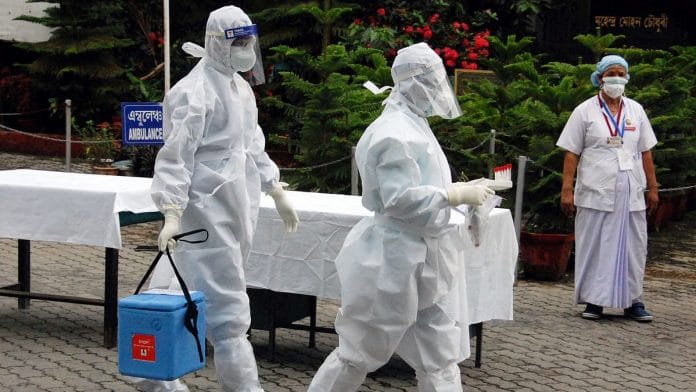London: Despite calls for solidarity, many countries have undermined the global fight against Covid-19 by acting in their own self-interest and failing to look after their most vulnerable citizens, new research shows.
Inequitable access to vaccines is the most glaring example of the lack of unity, according to the study led by Chatham House, a London-based think tank. Rich countries cornered the market, hampering global partnerships such as the Covax distribution program, the authors wrote.
The analysis published Wednesday also found that 46% of Covid-19 deaths across 21 countries were among care-home residents, people at the highest risk, and pointed to U.K. statistics showing males from a Black African background had a death rate almost four times higher than White men.
The researchers called for urgent steps to tackle disparities that have widened during the pandemic and prepare for the next threats. Scientists, businesses and other groups often have cooperated in innovative ways, but a number of lessons need to be learned, they said. Solutions need to be global, because even if countries reduce the prevalence of infections at home, they may still be at risk of new waves of mutations from abroad.
While countries across Africa and the Caribbean coordinated the sharing and allocating of resources, the European Union struggled to act as a regional bloc and Latin America experienced “political and technical dissonance,” the study found. After a period of U.S. hostility last year toward many multilateral institutions, positive signs are emerging, including the possibility the G-7 and G-20 group of nations may take on a more active role, the authors wrote.
“Solidarity is not just positive rhetoric,” the report found. “It is also a necessary condition for suppressing the pandemic effectively.” –Bloomberg
Also read: AstraZeneca vaccine 79% effective in US, raises no safety concerns






